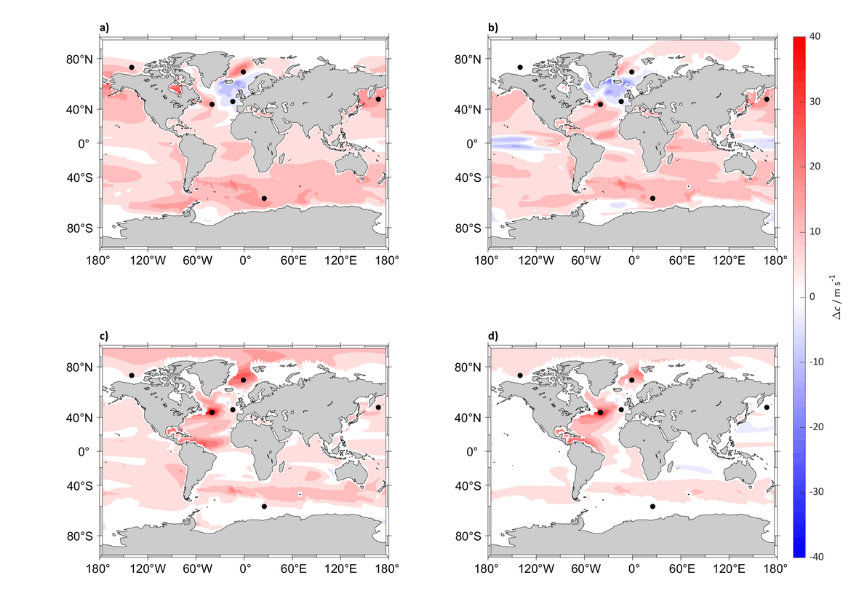TEXEL, Netherlands — What’s that sound coming from the ocean? A dire study reveals the underwater world is becoming increasingly noisy due to the effects of climate change, which is impacting marine life.
“In some places, by the end of this century, the sound of ships, for example, will be five times as loud,” says study first author Luca Possenti, oceanographer at the Royal Netherlands Institute for Sea Research. “That will interfere with the behavior of many species of fish and marine mammals.”
This research, conducted in collaboration with Utrecht University and the Netherlands Organization for Applied Scientific Research TNO, relied on mathematical modeling and explored the impact of different climate scenarios outlined by the United Nations climate panel Intergovernmental Panel on Climate Change (IPCC). The study focused on the temperature and acidity of seawater, as these factors influence the transmission of sound in the ocean. Due to ongoing greenhouse gas emissions, seawater is becoming more acidic, and alongside rising seawater temperatures, it is expected that underwater sound will travel further in most parts of the world’s oceans in the future.

Changing ocean currents also play a role in this phenomenon. The study predicts a shift in temperature layers in the northern Atlantic Ocean due to a likely decrease in the supply of warmer surface water. As a result, a separate “sound channel” in the upper part of the North Atlantic could form, effectively acting as a tunnel that carries sounds over longer distances. Under a moderate climate scenario, this is anticipated to lead to a seven-decibel increase in underwater sound levels in the region by the end of the century.
A seven-decibel increase corresponds to nearly five times the amount of noise energy underwater. Consequently, sounds generated by marine traffic and other sources, such as air guns used in seismic surveys, will intensify. Additionally, an expected rise in the number of ships in the oceans will contribute to the overall increase in underwater noise levels. Even under a moderate climate scenario, these changes could have significant impacts.
Possenti highlighted that the heightened human-generated noise would affect a wide range of marine life.
“In the absence of good visibility underwater, fish and also marine mammals communicate mainly through sounds,” notes Possenti in a media release. “If fish can no longer hear their predators, or if whales have a harder time communicating with each other, this will affect the entire ecosystem.”
In addition to the theoretical study, Possenti and collaborators at TNO and MARIN (Maritime Research Institute Netherlands) are conducting actual measurements of underwater sounds. They use breaking glass spheres to generate sounds at depths similar to those used by marine mammals, recording them from tens to hundreds of kilometers away.

“Much is still unknown about the exact effects of underwater conditions on the speed of sound,” says Possenti. “But because of the potentially profound effects on the ecosystem, that knowledge is essential if we want to understand what the changing climate may do to marine life.”
The study is published in the journal Environmental Science.
You might also be interested in:
- Out of this world! Sounds from other planets created using cutting-edge software
- Killer whales make sounds like Kim Kardashian and Katy Perry to catch prey
- 80 years later, records from warships at Pearl Harbor are aiding climate scientists

